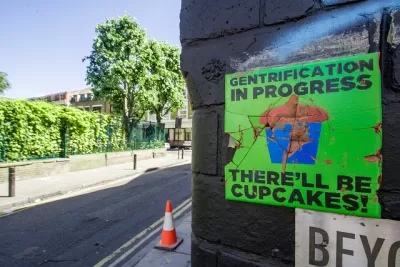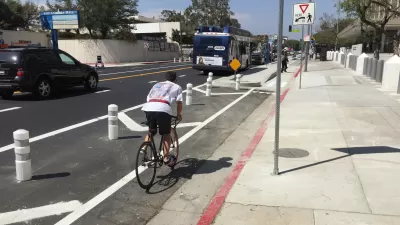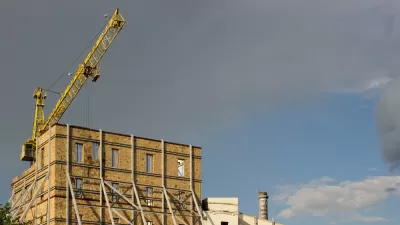Examining the complex sources of concerns about displacement and opposition to investment in low-income neighborhoods.

In an article in Governing, Aaron M. Renn explains the importance of cultural forces in shaping local responses to economic development initiatives. According to Renn, studies show that “gentrification-driven displacement either doesn’t happen in practice or is limited to a small number of locales nationally.” However, Renn points out, citing this data to allay concerns “misses a bigger point: Inflows of higher-income people do cause cultural displacement, as the values of the new wealthy residents become dominant in the community.”
What Renn calls ‘cultural displacement’ “can have practical and tangible consequences for daily life in these neighborhoods. In Oakland, Calif., gentrifiers have filed complaints with the city about gospel choir practice sessions at local Black churches, accusing them of being a noise nuisance.” Meanwhile, “Cultural concerns are frequently treated as illegitimate by intellectual elites.”
Renn notes that “As Jane Jacobs noted in The Economy of Cities, ‘Economic development, whenever and wherever it occurs, is profoundly subversive of the status quo.’ People in leadership positions in a community are generally benefiting from the status quo, hence can fear change.” Renn argues that “Cultural concerns should be understood and engaged with in order to create real progress,” rather than dismissed as unfounded fears.
FULL STORY: Why Many Poor Neighborhoods Fear Development

Planetizen Federal Action Tracker
A weekly monitor of how Trump’s orders and actions are impacting planners and planning in America.

Restaurant Patios Were a Pandemic Win — Why Were They so Hard to Keep?
Social distancing requirements and changes in travel patterns prompted cities to pilot new uses for street and sidewalk space. Then it got complicated.

Map: Where Senate Republicans Want to Sell Your Public Lands
For public land advocates, the Senate Republicans’ proposal to sell millions of acres of public land in the West is “the biggest fight of their careers.”

Maui's Vacation Rental Debate Turns Ugly
Verbal attacks, misinformation campaigns and fistfights plague a high-stakes debate to convert thousands of vacation rentals into long-term housing.

San Francisco Suspends Traffic Calming Amidst Record Deaths
Citing “a challenging fiscal landscape,” the city will cease the program on the heels of 42 traffic deaths, including 24 pedestrians.

California Homeless Arrests, Citations Spike After Ruling
An investigation reveals that anti-homeless actions increased up to 500% after Grants Pass v. Johnson — even in cities claiming no policy change.
Urban Design for Planners 1: Software Tools
This six-course series explores essential urban design concepts using open source software and equips planners with the tools they need to participate fully in the urban design process.
Planning for Universal Design
Learn the tools for implementing Universal Design in planning regulations.
Heyer Gruel & Associates PA
JM Goldson LLC
Custer County Colorado
City of Camden Redevelopment Agency
City of Astoria
Transportation Research & Education Center (TREC) at Portland State University
Camden Redevelopment Agency
City of Claremont
Municipality of Princeton (NJ)





























